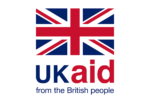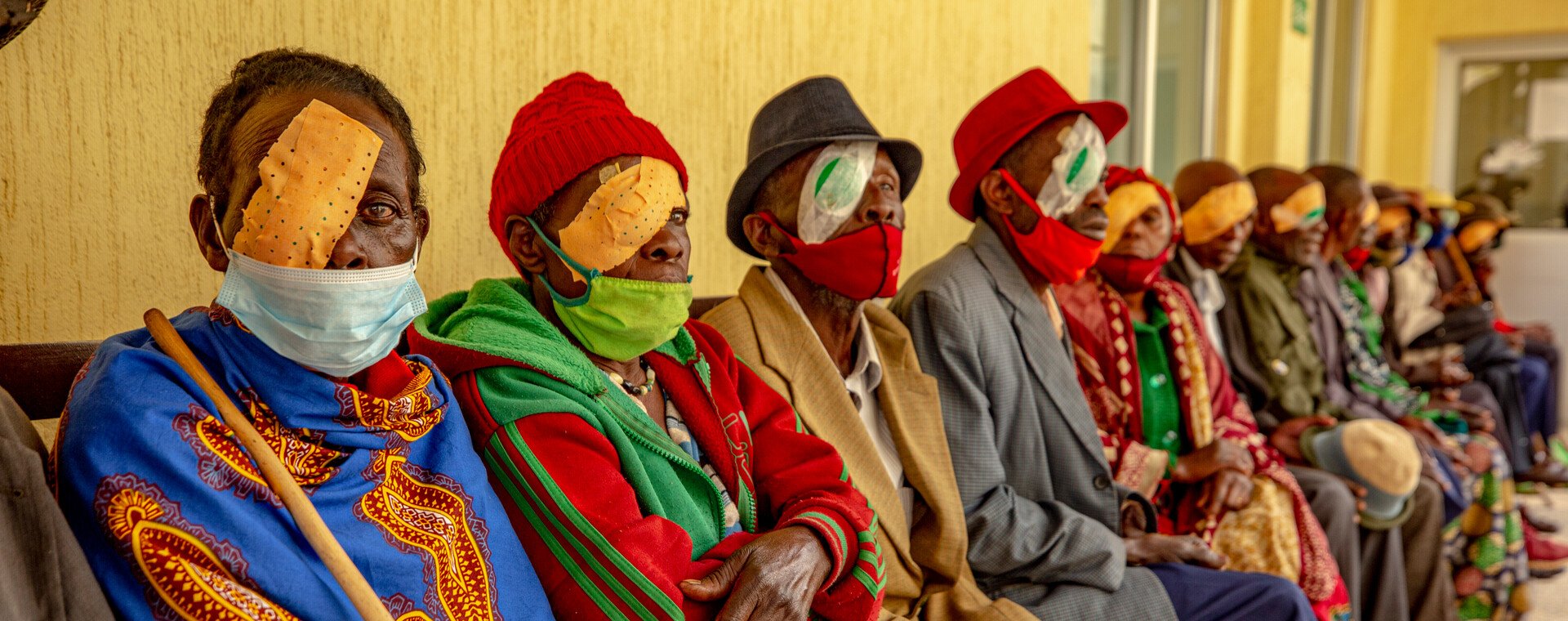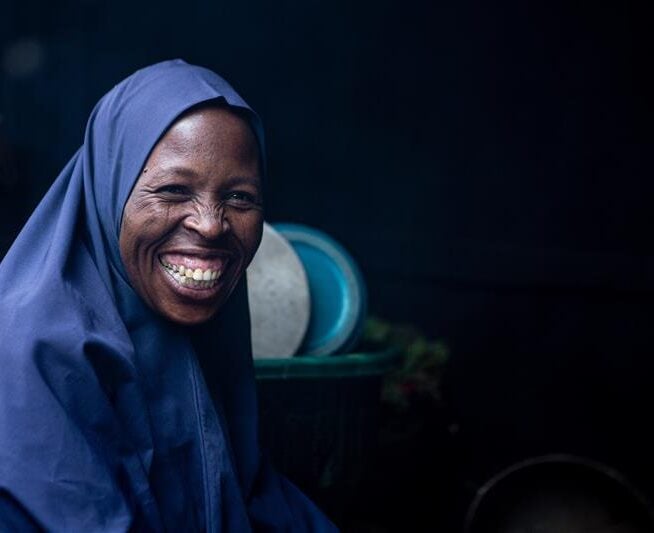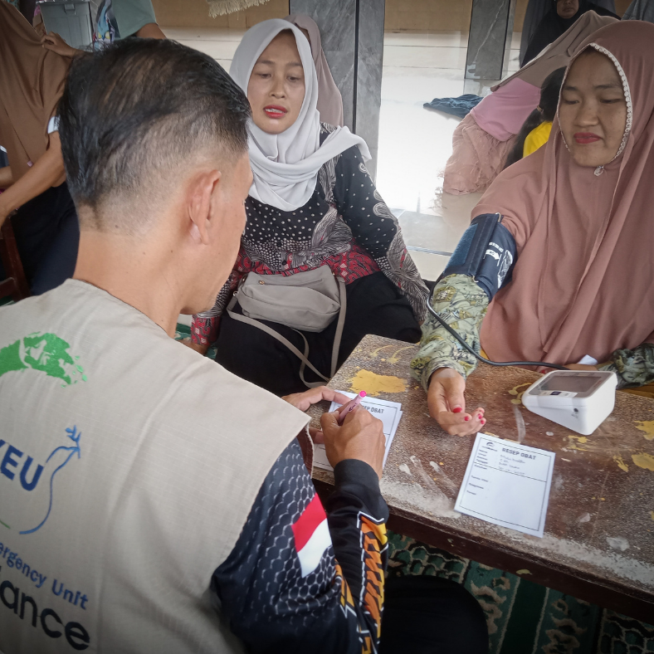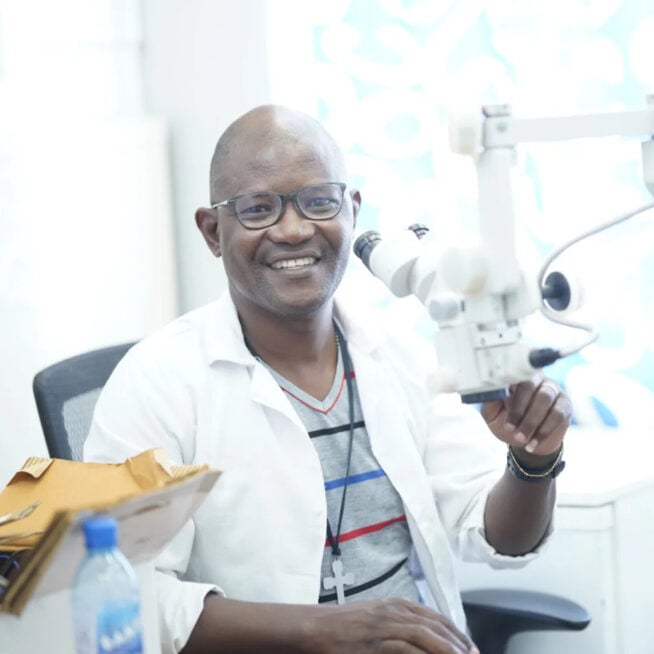Five years ago, our amazing supporters generously donated £845,000 to our UK Aid Match See the Way appeal, dedicated to providing vital eye health services in rural Rwanda. This was then matched by the UK government, raising over £1.8 million in total.
See the Way Rwanda: Restoring Sight, Renewing Lives
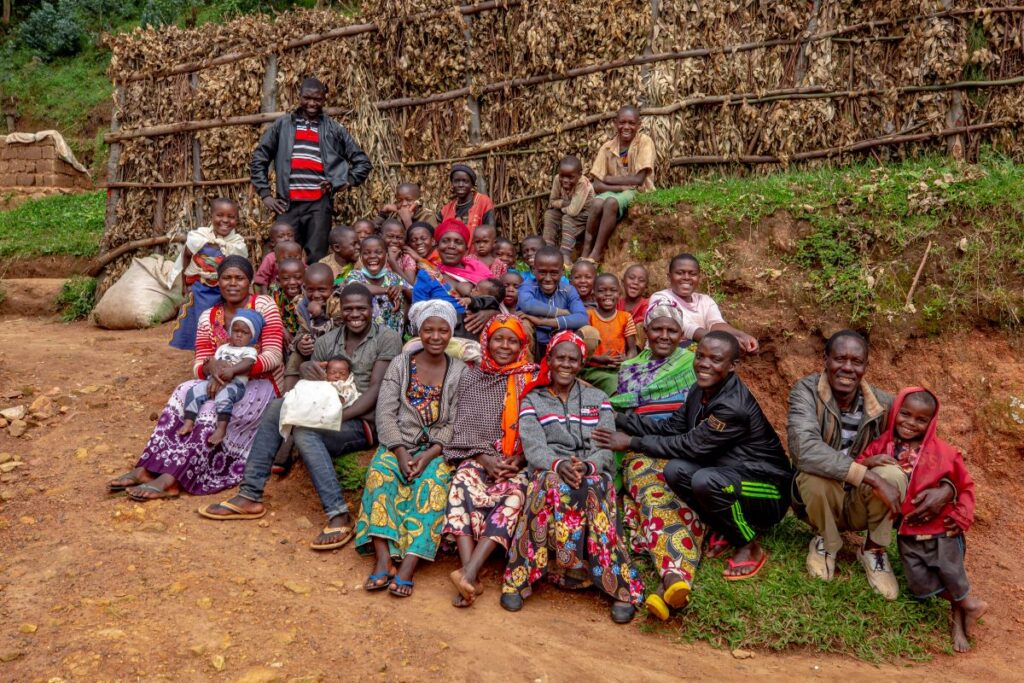
Our See the Way Rwanda project has now finished, and we are delighted to report that, together with our partners, Kabgayi Eye Unit (Catholic Diocese of Kabgayi), we delivered eye health services to 35,608 people, providing treatment and protecting their vision. 1,994 people received cataract surgeries, restoring their sight and renewing their lives.
Here, three of the people who had cataract surgery describe the joy of being able to see once more and the impact that it will have on their families now and in the years ahead:
Cyprien
When we first met him, three years had passed since Cyprien started to lose his sight. He went to a hospital, but the staff there couldn’t diagnose his cataracts. He didn’t know his sight could be restored.
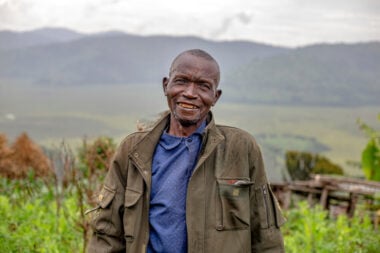
Thanks to our partners and supporters, our project in Rwanda has improved eye care in four rural districts. For Cyprien, this opened up not only the possibility of diagnosis, but also treatment, in his own local area. Cyprien was able to have the sight-restoring cataract surgery he had needed for years.
Returning home, able to see again, he embraced his wife and waved to people he hadn’t recognised in years. He told us: “I can now recognise my wife, my children and my neighbours. I am so happy to be back here. I feel like I am now in a new world. I am free to do anything.”
“I can now recognise my wife, my children and my neighbours. I am so happy to be back here.” Cyprien
Velena
Velena knew that she needed cataract surgery, but for her, treatment was impossible without help. The hospital is too far to walk; but transport is expensive and unaffordable. Her son had to take time off work to care for her. Thanks to your wonderful donations, Velena received support to travel and was able to have sight-restoring cataract surgery.
Velena told us: “I am happy to see everyone again. I am happy to see my neighbours and my grandchildren. I am happy to see them all again.”
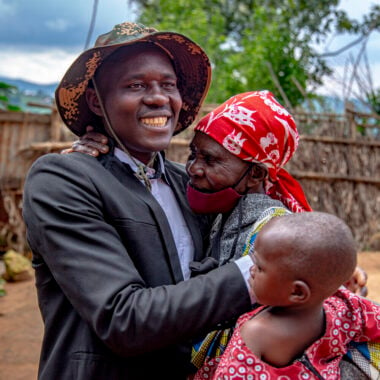
Jean Claude, Velena’s son, said: “You have changed my mother’s life. She is happy to see her family again and happy to see her neighbours and all people around. I will be able to now start my business because I will have more time.”
Valerie
Valerie lives with her eighteen-year-old granddaughter, Jeanette, who looks after her. Valerie told us; “When my vison was good, I was trying to farm. I would visit neighbours to work for them on their land, but at this time I am unable to earn money.”
“I couldn’t get the money to take me to the hospital. I could only stay here like this, just like this, just waiting, just sitting here. I feel I was waiting for God to make some miracles for me.”
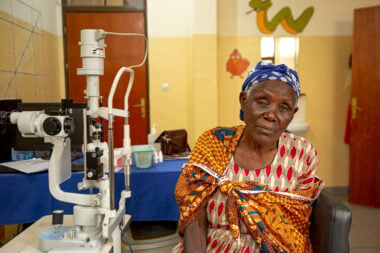
Thanks to your support, Valerie had cataract surgery to restore her vision. Delighted, she said “I can now see everyone, and I can walk around without the support of others.”
Eye care for all
See the Way Rwanda has made long-term improvements to the quality and accessibility of eye health services in Rwanda. By improving the eye health services in four rural districts of Rwanda, people no longer have to travel across the country for treatment. For many people, the unaffordable cost of this travel was a huge barrier to accessing the care they needed. Strengthening the capacity of local, rural services is a game-changer for many people in need of eye health care.
Our project has also improved the quality of eye health consultations. Before the project began, only 17.5% of eye health consultations were conducted correctly. This has vastly improved, reaching 73% in the final year, thanks to the excellent training and mentoring offered through the project, alongside providing the necessary equipment.
Another key part of this project was making services more accessible to people with disabilities. Together with our partners, and in collaboration with Organisations of Persons with Disabilities (OPDs), we adapted four district hospitals to be more inclusive, building a sustainable base for treatment to continue in the future. This included adaptations like wheelchair ramps, lower reception counters, tactile walkways, allocated parking and accessible toilets. Staff training in Disability Inclusion was also organised with the support of OPDs.
Thank you to all our fantastic supporters who made this project possible: you have changed the lives of thousands of people now, and for many years to come.
“We learned many things as a result of this partnership. One thing is to be inclusive in our service provision, so that people with different kinds of disabilities may easily get access to eye care. We now have people trained in sign language. A specially designed tactile walkway leads to the department of Ophthalmology. Facilities have been re-designed to fit these needs.” Liliane Ingabire, Ophthalmic Clinical Officer in charge of the Ophthalmology Department, University Teaching Hospital of Butare.
Header image: Velena returns home after successful cataract surgery restored her sight, the benefits being felt by the whole community who come together here in celebration.
All photos: CBM/Habimana
